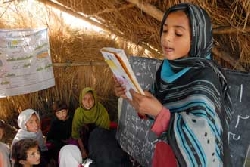International Rescue Committee Malaria Expert Available for Interviews in Advance of Thursday's White House Summit

Contact: Ed Bligh, International Rescue Committee, 212-551-3114, edward.bligh@theIRC.org
WASHINGTON, Dec. 12 /Standard Newswire/ -- International Rescue Committee Physician Emmanuel d'Harcourt oversees IRC health programs for children in four African nations. He has just returned to New York from a visit to Rwanda, where he observed the implementation of U.S.-supported anti- malaria programs. In advance of the White House Summit on Malaria scheduled for Dec. 14, he will be available to discuss how the President's initiative is being carried out on the ground.
Malaria is a largely preventable disease that kills more than a million people per year and is the leading killer of children in Africa.
"It's great that attention is once again being focused on malaria which has, compared to HIV, gotten very little funding," d'Harcourt says. "Also, approaching the problem country-by- country is a good idea. In Rwanda, the staff running the President's Malaria Initiative is making strong efforts to build a locally appropriate strategy with locally appropriate partners."
d'Harcourt does have concerns, however, about how resources are being spent, including the tendency to devote resources to technical advice rather than commodities support for front-line health workers. He further notes: "Unfortunately, there hasn't yet been much budget transparency and it is difficult to determine where the large and very welcome sums are being spent."
d'Harcourt traveled in Rwanda from Nov. 11 to 25, where he visited US-supported malaria program sites in the east (Ngoma), south (Gisagara) and west (Nyamasheke).
d'Harcourt is a pediatrician and the senior technical advisor for Child Survival with the International Rescue Committee. He has lived in Senegal and Rwanda and currently oversees child health programs in DR Congo, Rwanda, Sierra Leone and South Sudan. He developed Rwanda's first child survival program in 1999, and regularly returns. His work focuses on malaria control and on building health systems in countries recovering from conflict. d'Harcourt graduated from Yale University, the Johns Hopkins University School of Medicine and the Harvard School of Public Health.
Photo: Since the Soviet invasion in 1979 a steady decline has all but demolished Afghanistan’s educational infrastructure. An estimated 80 percent of school buildings were damaged or destroyed in the war and Afghanistan has the lowest overall literacy rate in Asia. Since the fall of the Taliban in 2001, a number of home-based schools have started up, like this IRC-supported one in a village near Jalalabad. The IRC is currently supporting some 7,000 students and over 1,000 teachers in six of Afghanistan’s provinces.
The International Rescue Committee (IRC) serves refugees and communities victimized by oppression and violent conflict worldwide through the provision of emergency relief, post - conflict development, resettlement assistance and advocacy. Visit http://www.theIRC.org.





 Sign Up to Receive Press Releases:
Sign Up to Receive Press Releases: